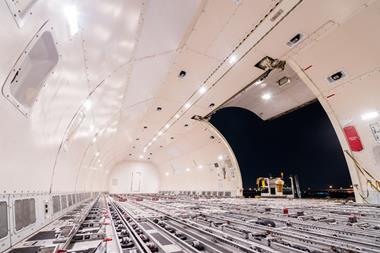An ongoing challenge to the smooth passage of trade throughout 2022 was the strike action at Felixstowe and Liverpool ports, running from August to October, which caused disruption to supply chains across the country.
This disruption has continued into the beginning of 2023, where consumer activity has dropped and as a result, there is reduced demand for freight movements across all modes.
However, a boost to the economy is expected later in the year as inflation stabilises and the cost-of-living becomes more manageable.
Logistics UK is pleased to see that the availability of airfreight is improving as its rates continue to fall, with long-distance air cargo rates up to 40% lower compared to 2022.
Kerosene, the fuel used in aeroplanes, is up to 30% lower in price than during summer 2022, improving the financial viability of transporting goods via air cargo as businesses face lower costs and reduce their fees in parallel.
However, while air freight rates and cost-effectiveness have improved, the UK inflation rate remains high which is having an impact.
Despite falling to 10.1% in January from 10.5% in December – as reported by the Office for National Statistics (ONS) - inflation is still considerably higher than the rate of 5.5% seen one year ago.
With the cost of living at a record high, figures are starting to show a reduction in consumer spending; economy-wide consumer purchases are 5.8% lower than a year ago, with discretionary consumer spending on goods such as jewellery and watches falling by 2.1% in December 2022 alone (despite this being the traditional peak for purchases of both).
The rise of online shopping and the demand for next-day delivery has impacted the amount of goods transported via air significantly in recent years, especially during the pandemic, with online retail sales accounting for 25% of all retail sales in January 2023, compared to only 19% in January 2020.
Online retail sales as a percentage of all retail peaked at 37.5% in February 2021 but have since fallen back - but are still not back to pre-pandemic levels.
In addition to harming the country's economy and possibly forcing business closures, future inflation surges would divert funds away from investments in greener technologies, that could make it difficult to meet the nation's emissions reduction targets.
Logistics UK is therefore hopeful that opportunities will be taken by the Chancellor Jeremy Hunt within the upcoming Spring Budget to stabilise the economy and provide certainty for the country moving forward.
Without this commitment, economic activity levels are set to reduce further, which will have a knock-on effect on air freight carriers and the capacity they offer, as well as the prices they are able to attain.















